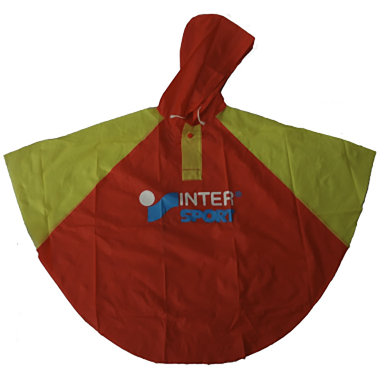Aug . 09, 2024 05:00 Back to list
Raincoat Suppliers and Manufacturers for Global Markets and Export Opportunities
Raincoat Exporters Meeting Global Demand for Weather Protection
In recent years, the demand for raincoats has surged globally, driven by changing weather patterns, increased urbanization, and a growing awareness of the importance of protective clothing. Raincoat exporters have emerged as key players in this market, supplying consumers and businesses with essential gear that offers both functionality and style. This article explores the dynamics of the raincoat export market, highlights leading exporters, and examines trends that shape the industry.
The Growing Demand for Raincoats
As climate change leads to unpredictable weather patterns, regions that previously experienced mild weather are now facing heavy rainfall and storms. Consequently, consumers are more inclined to invest in quality rainwear. Moreover, with the urban population on the rise, commuting in rainy weather has become a norm, further increasing the need for raincoats that are not only durable but also stylish. Raincoat exporters are finding lucrative opportunities in both developed and emerging markets, where consumers are looking for reliable and fashionable rain protection.
Major Raincoat Exporting Countries
Countries such as China, Bangladesh, and Vietnam have established themselves as leading exporters of raincoats, primarily due to their strong manufacturing capabilities and cost-effective production. China, in particular, dominates the raincoat export market, thanks to its vast textile industry and export-oriented economy. Additionally, the country offers a wide range of raincoat styles, fabrics, and designs, catering to diverse consumer preferences around the world.
Bangladesh has also made significant strides in the raincoat export sector, leveraging its experience in garment manufacturing. The country’s focus on sustainable practices is gaining attention, as eco-conscious consumers increasingly prefer products made from recycled materials. Similarly, Vietnam is capitalizing on its reputation for high-quality textiles and ethical labor practices, making it a favorable choice for brands seeking to source raincoats responsibly.
raincoat exporters

Innovations in Raincoat Design and Technology
As the raincoat market evolves, exporters are responding to consumer demands for innovation. Modern raincoats are now being designed with advanced materials that offer enhanced waterproofing, breathability, and comfort. Technologies such as GORE-TEX and other waterproof membranes have revolutionized the industry, providing consumers with lightweight options that do not compromise on protection.
Furthermore, the trend toward customization is gaining traction. Many raincoat exporters are now offering bespoke solutions, allowing retailers to create unique designs that cater to specific market segments. This flexibility not only differentiates brands but also attracts a wider customer base.
Sustainability in the Raincoat Export Industry
Sustainability has become a core value for many raincoat manufacturers and exporters. With increasing concerns about plastic pollution and the environmental impact of textile production, exporters are actively seeking sustainable materials and processes. Innovations such as biodegradable fabrics and recycled plastics are becoming key selling points for raincoat exporters. Brands that prioritize ethical sourcing and eco-friendly production processes are likely to capture the attention of environmentally conscious consumers.
Conclusion
The raincoat export industry stands at a crossroads of opportunity and responsibility. With the rising global demand for effective weather protection, exporters have the chance to expand their markets and diversify their offerings. However, this growth must be coupled with a commitment to sustainability and innovation. As more consumers seek functional yet fashionable solutions for unpredictable weather, raincoat exporters have the potential to lead the way in a market that not only meets the needs of consumers but also contributes positively to the environment. The future of raincoat exports looks promising, as the industry adapts to changing consumer behaviors and global challenges.
-
Kid Apron without Sleeves: PEVA/PVC, Custom Designs
NewsAug.10,2025
-
PEVA Pet Bodybag 0.20mm White Curve Zipper 36x81cm
NewsAug.09,2025
-
PVC/PEVA Rainwear & Rainsuits: Durable, 0.20mm All-Weather Gear
NewsAug.08,2025
-
Kids PVC/PEVA Rain Poncho - 100% Waterproof with Hoodie
NewsAug.07,2025
-
Durable PEVA Pet Body Bag | 45x55CM | Custom Printing
NewsAug.06,2025
-
White PEVA PVC Pet Body Bag with Handle | Durable Portable
NewsAug.05,2025





